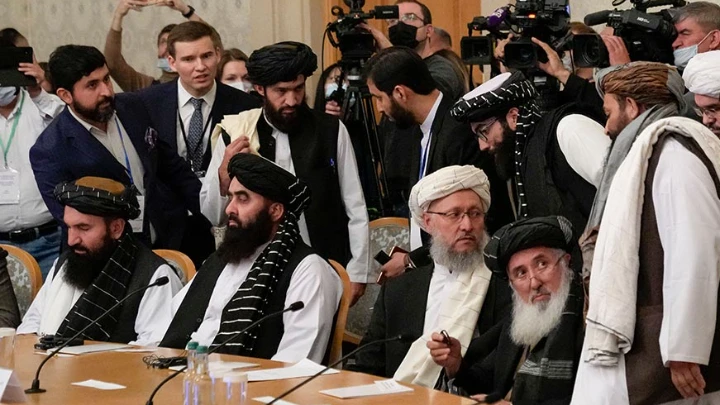On 21 August 2024, the Islamic Emirate of Afghanistan’s (IEA) envoy to the United Arab Emirates (UAE) formally presented his credentials to Abu Dhabi. Badruddin Haqqani was appointed as the Taliban’s envoy to the UAE in October 2023 and became the second Taliban diplomat to be formally accepted by a country. In January, the Chinese President accredited its Taliban envoy in a ceremony at the Great Hall of the People. While the UAE did not organise a grand ceremony like Beijing, and the envoy was received by the Assistant Under Secretary for Political Affairs, the Taliban Foreign Ministry’s statement did hint at an impending ceremony that would happen at a later date. Notwithstanding this, the action is a diplomatic win for the Taliban and comes against the backdrop of the IEA completing three years in power.
Pragmatism over other considerations?
The UAE was one of the three countries that formally recognised the first iteration of the Taliban’s Islamic Emirate (1996-2001), along with Saudi Arabia and Pakistan. Even as the country reduced its diplomatic presence in Afghanistan in the aftermath of the 2017 attack on its ambassador and supported the United States’s (US) efforts during the ‘war on terror’, it has been incrementally engaging with the group. It reopened its embassy in September 2021 and, in 2022, an Abu Dhabi-based firm GAAC Solutions won the deal to manage all ‘on-ground operations’ at the three airports in Kabul, Kandahar and Herat. Both Qatar and Türkiye were expecting to receive the deal as a preliminary deal was reached with them in the beginning of 2022. Ultimately the final contract was signed during the visit of IEA’s Deputy Prime Minister Mullah Abul Ghani Baradar to the country in September 2022. AirArabia and FlyDubai also resumed flights to and from Kabul.
The UAE was one of the three countries that formally recognised the first iteration of the Taliban’s Islamic Emirate (1996-2001), along with Saudi Arabia and Pakistan.
Emirati leaders have been meeting senior Taliban leadership since their return to power. A week before the accreditation of the envoy, the President, Sheikh Mohammed bin Zayed Al Nahyan met IEA’s Acting Prime Minister Mullah Mohammad Hassan Akhund who was visiting the country for medical reasons. In June, Sheikh Nahyan met Sirajuddin Haqqani, the Acting Interior Minister of the IEA and the two discussed steps to safeguard mutual interests and maintain stability in the region. For Abu Dhabi, having a relationship with the Taliban is important for multiple reasons—for its competition with Qatar and Doha’s increasing influence in post-withdrawal Afghanistan, and its concerns about terrorism. Thus, it is leveraging the current scenario to expand its influence in the country.




